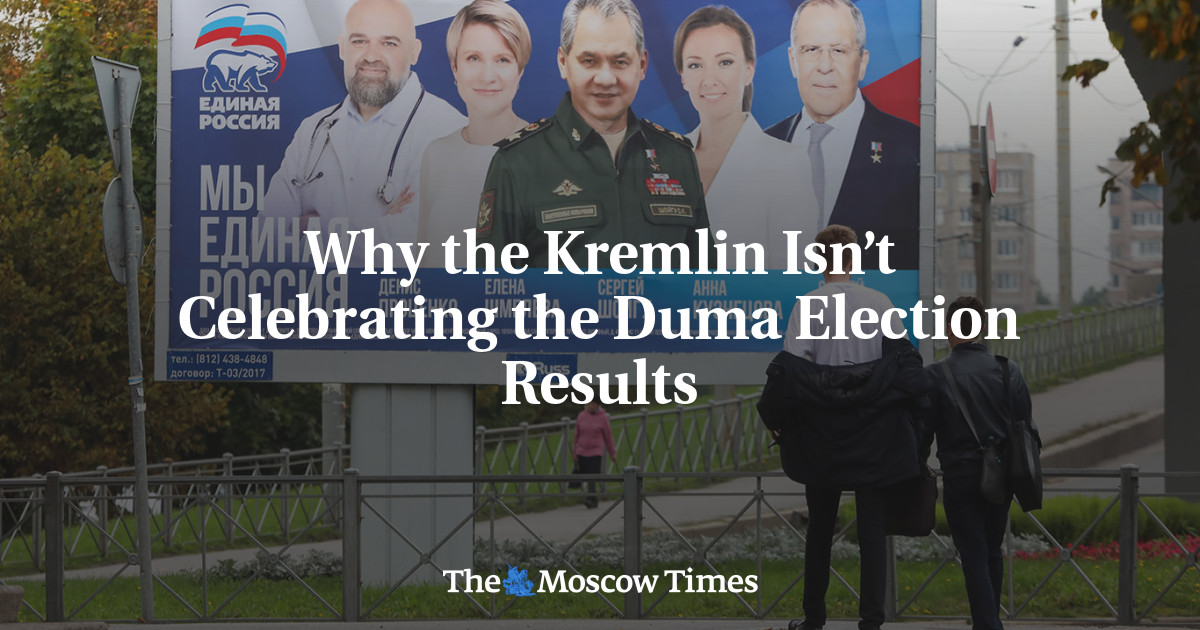- Joined
- Apr 18, 2013
- Messages
- 112,609
- Reaction score
- 102,890
- Location
- Barsoom
- Gender
- Male
- Political Leaning
- Independent

Why the Kremlin Isn’t Celebrating the Duma Election Results - The Moscow Times
Opinion | United Russia retained its majority at the recent State Duma elections — or, as President Vladimir Putin put it, “reaffirmed its leadership.” With half of the 450 seats in parliament allocated by votes for party lists and the other half through single-mandate constituencies, the ruling...
09/24/21
United Russia retained its majority at the recent State Duma elections — or, as President Vladimir Putin put it, “reaffirmed its leadership.” Despite United Russia’s approval rating falling to 30% on the eve of the elections, the party has very nearly repeated its success in the last election five years ago, when it won 54.2% of the vote and over 340 seats. That’s no mean feat considering that back then, the wave of support that followed the annexation of Crimea had not yet died down, nor had the government made the unpopular decision to raise the retirement age. That might seem like cause for celebration, but the Russian leadership apparently thinks otherwise. The party list leaders, Defense Minister Sergei Shoigu and Foreign Minister Sergey Lavrov, weren’t at the party headquarters on election night, and didn’t even congratulate party members by video link. Nor did Putin, even though he had actively campaigned for United Russia, and had visited its headquarters in person following the last two parliamentary elections. Even the party’s official leader, former president Dmitry Medvedev, wasn’t at the headquarters.
The president’s requirements of the Duma campaign were clear a year ago: the retention of a constitutional majority (two-thirds of all seats). The president did what he could to boost United Russia’s campaign, touring the country, meeting with people, and granting one-off payments to various segments of society ahead of the election. Moving forward, the Kremlin’s political managers will either have to bring their work closer in line with the leadership’s model, or put all their efforts into removing the president from public politics. Prominent figures such as TV presenters, actors, and social activists can be added as needed to the basic brands — or removed. This applies to United Russia, too. Politics will become akin to a marketing contest, where the president does not personally take part in the battle of the brands, but merely gets the right numbers. But Putin, it seems, is not prepared to limit himself to the role of a client for whom the necessary figures are modeled. He wants to be a leader, like before. That’s understandable: managers work for any client in theory, but the role of leader is incontrovertible. This is why the president and his administration have such different evaluations of the Duma election results.
The above is for those interested in arcane Russian political science.
Suffice it to say that the Putin regime used every advantage they could imagine (even imprisoning opposition candidates) to secure a Duma supermajority.
9/25
